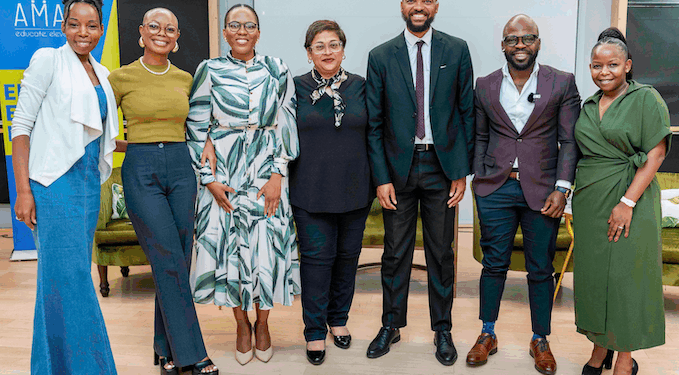The Advertising Media Association of South Africa (AMASA), in strategic partnership with the Gordon Institute of Business Science (GIBS), hosted the highly anticipated AMASA Igniters Forum on Tuesday, 16 September 2025. The forum convened industry leaders, strategists, and innovators to confront the pressing question: Is the media industry truly evolving with new media, or merely repackaging old ideas for new platforms?
Delivering the keynote address, Shoeshoe Ntsoaki Qhu, CEO of the Media Development and Diversity Agency, warned that South African media risks being left behind by “moving too slowly”.
She stressed the need to “hurry slowly”, balancing innovation with inclusivity so that all South Africans, including those reliant on traditional and community media, are brought along in the transition to digital.
Critical issues
The discussion highlighted critical issues shaping the sector:
- Community and grassroots media: A call for greater investment in hyperlocal platforms that connect authentically with audiences in their own languages.
- Policy and regulation: Recognition that industry cannot wait for government alone, but must collaborate on frameworks that ensure accountability and sustainability in emerging platforms.
- SMEs and youth participation: Panellists noted that small businesses and young entrepreneurs represent both the future tax base and a powerful creative force in shaping media’s evolution.
- Global vs local priorities: While international compliance frameworks dominate investment decisions, there was consensus on the importance of supporting South African media owners and bridging the gap for smaller agencies.
Diverse perspectives
Panel contributions from Merissa Himraj (client president South Africa, WPP Media), Michael Motsoeneng-Bill (managing partner Motsoeneng Bill Attorneys Incorporated), Pat Mahlangu (CEO Lerato Agency and founder of Pat on Brands), and Cheryl Manentsa (senior manager: media at Nedbank) reflected diverse perspectives across media buying, entrepreneurship and brand strategy.
Audience engagement further underscored the urgency of addressing fact-checking, resource constraints and the role of industry self-regulation.
Closing the session, Memoria Masilela, AMASA chairperson and head of government and media strategy at United Stations, reinforced the collective responsibility of agencies, brands and government to invest in skills development, mentorship and sustainable growth.
Keeping pace with cultural shifts
“We must ensure the industry keeps pace with technological and cultural shifts; together while mentoring and upskilling the future leaders of our industry; the youth,” she said.
The forum reaffirmed the need for integrated, forward-thinking strategies including reinforcing policies for compliance, ethical work practices and understanding global compliance requirements as small media owners and community media to help participating in proposals in a much more informed and thorough manner to bridge the gap between tradition and transformation.
AMASA and GIBS will continue driving these conversations to support a media sector that is inclusive, innovative and future-fit.
AMASA and GIBS thanked all panellists, speakers, and attendees for their insightful contributions and looks forward to continuing the dialogue and collaboration that will shape the future of South African media.
The Advertising Media Association of South Africa (AMASA) is dedicated to educating and empowering media, marketing, and advertising professionals through thought leadership, advocacy, and collaboration.
Internationally accredited Gordon Institute of Business Science (GIBS) is the University of Pretoria’s business school based in Johannesburg. GIBS focuses on general management and aim to significantly improve responsible individual and organisational performance in South Africa and broader African environments through high-quality business and management education. Their purpose is to inspire exceptional performance to make business healthier.














